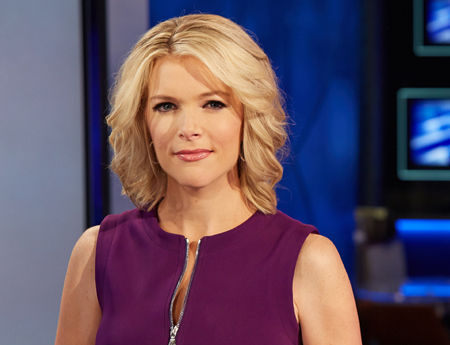To Stand Up Is to Stand Out In New News Competition

The smarter way to stay on top of broadcasting and cable industry. Sign up below
You are now subscribed
Your newsletter sign-up was successful
These are newsy times for TV news. Just-launched networks Al Jazeera America and Fusion have swelled the ranks of all-news networks, and they are hewing to a less politicized packaging of the news, just as CNN embarks on a path toward “more shows, less newscasts,” in the words of President Jeff Zucker. As nets keep looking for an edge, many observers—not only the usual critics—fret over lowered standards, with various operations, even the august 60 Minutes coming in for fierce criticism in 2013. Here are some of the currents set to ripple the waters in the year ahead:
O’Reilly’s New In-House Rival
Megyn Kelly, a longtime fixture in daytime on Fox News, joined the No. 1 cable news net’s primetime lineup last fall and has vaulted to No. 2 in all of primetime news, trailing only her network mate Bill O’Reilly. Sandwiched between O’Reilly and Sean Hannity, Kelly has connected with viewers by offering something different. The former lawyer’s stock in trade is less political sloganeering than forcefully moderating conversations and pouncing on chances to provoke. Case in point: her unapologetic December insistence that Santa Claus “just is” white (as was Jesus Christ).
The controversy Kelly’s comments generated paled next to those of Alec Baldwin and Martin Bashir, both of whom exited MSNBC swiftly after using highly charged words on the air (in Bashir’s case) and off. There’s nothing new about cable news anchors touching the third rail, but it leads one to wonder if the more competitive landscape of 2014 will encourage more self-immolation or self-reflection.
The Mark of Zucker
Heading into 2013, the details of Zucker’s strategy in reviving CNN were still fuzzy. A year later, originals such as Anthony Bourdain’s Parts Unknown and documentary films such as the well-received Blackfish have made CNN stronger and less reliant on the George Zimmerman trial du jour.
The interesting question: Where from here? Zucker has indicated that in his view CNN’s competition includes not only other cable news nets but more-diverse outlets such as Discovery, A&E and History. So expect more deals along the lines of those to bring in Bourdain, Super Size Me filmmaker Morgan Spurlock, former ABC anchor Bill Weir and ex- New York Times media reporter Brian Stelter. And it may also be wise to expect things you are probably not expecting.
The smarter way to stay on top of broadcasting and cable industry. Sign up below
Today Looks to Tomorrow
NBC’s Today begins 2014 in an unfamiliar position: No. 2. After ruling the morning news ratings for 16 years, it lost the full-season race to ABC’s Good Morning America last year in the wake of personnel turmoil, including a bitter Ann Curry departure.
NBC brass conceded that they’d let the show get a bit stale. Not surprisingly, given the massive profits at stake, a reversal has become a major priority for new NBC News chief Deborah Turness, who came aboard from Britain’s ITV. There have been a few format tweaks, including a new set and some new talent to surround Matt Lauer and Samantha Guthrie, including Carson Daly in a digital-centric role. Close observers of the horserace point out that the ratings gap has narrowed in recent weeks.
Toeing the Line
The race to be first and the heat of competition are always major risk factors for the full-tilt news business. Two situations boldfaced and italicized that reality in 2013: several nets’ missteps in covering the aftermath of the Boston Marathon bombing and 60 Minutes’ ill-fated report on the Benghazi attacks.
In many respects, the Boston bombing offered something of a template for what news operations will face on the next breaking story: an avalanche of material spreading out online, from police scanner tweets and Reddit and other sources. CNN blamed sources it had relied on in the past for its mistakes— which, in fairness, were less egregious than the New York Post’s unconscionably running pictures of completely innocent men whom it depicted as “BAG MEN” responsible for the bombing.
With Benghazi, the errors in judgment were many and surprising, given the reputation of 60 Minutes. The report by Lara Logan, who was suspended indefinitely along with her producer, centered on the recollections of the attack by a hired security agent, whose accounts on the show differed significantly from the versions he told the U.S. government and others. He also was the author of a book about the incident, which was published by a small division of CBS, a fact that was never disclosed in the segment.
